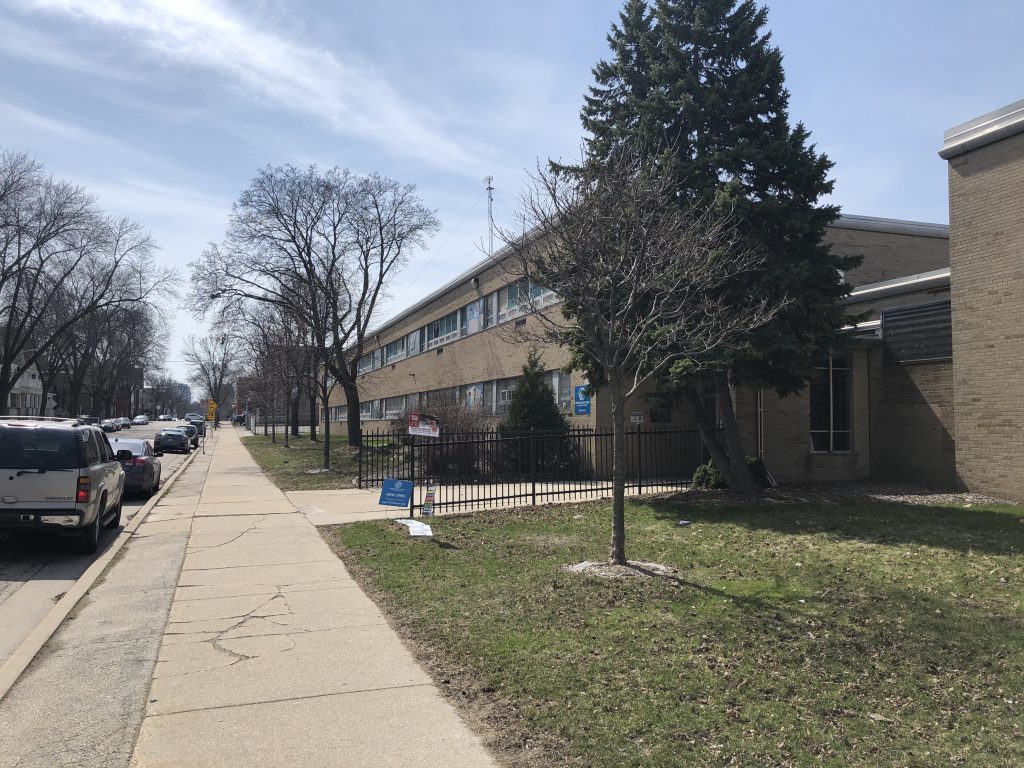Could MPS Lose Its 275 International Teachers?
Facing a teacher shortage, will it lose foreign staff due to Trump's policies?
Milwaukee Superintendent Brenda Cassellius needs to fill 80 regular classrooms with teachers for next year and has tried to have 40 support teachers go back into the classroom with very limited success.
One group that Milwaukee Public Schools has relied upon is teachers from other countries. This year, the district had approximately 275 international teachers from all parts of the world. But MPS may not be able to count on such teachers in the future. It is already unable to recruit additional international teachers because the Trump administration has cut off all work visas for them across the nation.
Marco (not his real name) is one such international teacher that MPS has relied upon. He fell in love with American culture watching American movies, cartoons, and sports. “That helped me learn English.”
After teaching a few years in his home country, he sought an opportunity to come to the United States. The teaching shortage here gave international teachers that chance. Marco says that several school districts were interested in hiring him, but Milwaukee Public Schools really seemed the most prepared.
MPS has gone to several countries in Africa and South America with full interview teams, says Marco. Prospective teachers could also apply online, and MPS was willing to conduct Zoom interviews. In 2023, MPS had approximately 200 international teachers, which has increased to 275 since then.
“Milwaukee Public Schools seemed to have the best offer. They were very prepared… The HR department had an immigration attorney to help us out,” says Marco. MPS “seemed most trustworthy to me.”
With the MPS offer in hand, Marco got instruction from the district for the paperwork, passport, degrees, and evaluations, Then, he went to the embassy consulate for a visa interview. The whole process took eight months.
Marco says MPS met him at the airport and put him up in a local hotel. They went through training, setting up Social Security, medical exams, opening bank accounts. MPS “really helped us out.”
But as much as the school district was willing to help in the transition, some new international teachers faced harsh realities. Marco was fortunate that he was single, but others brought their entire families only to discover the visa only allowed them to work for MPS, not to take part-time or summer jobs, nor were their partners allowed to work. Marcos was able to cover his expenses. Other struggled.
Things have gotten worse for international teachers since Trump, says Marco. They fear traveling through airports; they might be stopped by immigration. “They don’t want to risk it.” But Marco has a friend who has traveled back and forth from Columbia with no problems. While Marco has traveled in the past, he won’t take that chance his year.
Almost all of the international teachers are staying in MPS for now, according to Marco, although data from the district was not available to confirm this. “They are hoping that they will get permanent residency.”
International teachers rely on H-1B visas which allow them to work in the United States for three years and can be renewed for another three years. But that is only possible if the federal government decides there’s a shortage of workers in a particular field which cannot be filled by Americans.
H-1B visas are favored by non-American employees because, after the six-year period, an employer can sponsor an employee for a more permanent status, the issuing of a “Green Card” which can result in American citizenship. But things have changed under Trump: it’s unclear whether his administration would even consider allowing international teachers to remain in this country. The administration has already stopped processing green cards for those labeled refugees.
Marco believes that international teachers bring value to the district, something the International Alliance Group has argued. Students get to interact with teachers from different cultures. “We can bring our experiences, our knowledge, our approaches to the students,” he says.
Marco is able talk to parents and children who may be refugees from other countries with a common bond because he isn’t an American, and he is trying to find his way through this country just like them. Marco has no fear talking to immigrant families but acknowledges speaking publicly against present governmental polities present some danger to his visa status. He is not able to speak as freely as American citizens.
He believes that international teachers are more likely to stay in that profession while many American teachers only want to teach for a few years and then move on to another profession. He says many international teachers come from countries where teaching is a more honored profession. Being an educator is a final career goal even if they are only able to stay in the United States for six years or less. If they go back, they can bring part of that American culture and values with them.
But as the federal government continues to restrict international teachers coming to this country, as fewer such teachers believe that America is a viable place for them to educate children, districts like Milwaukee may find their teacher shortage becoming worse.
If you think stories like this are important, become a member of Urban Milwaukee and help support real, independent journalism. Plus you get some cool added benefits.
K-12 Education
-
MPS Training in Science of Reading Going Poorly
 Nov 23rd, 2025 by Terry Falk
Nov 23rd, 2025 by Terry Falk
-
The Fear Factor at MPS
 Nov 11th, 2025 by Terry Falk
Nov 11th, 2025 by Terry Falk
-
MPS Reaching Out to Community
 Nov 2nd, 2025 by Terry Falk
Nov 2nd, 2025 by Terry Falk






















